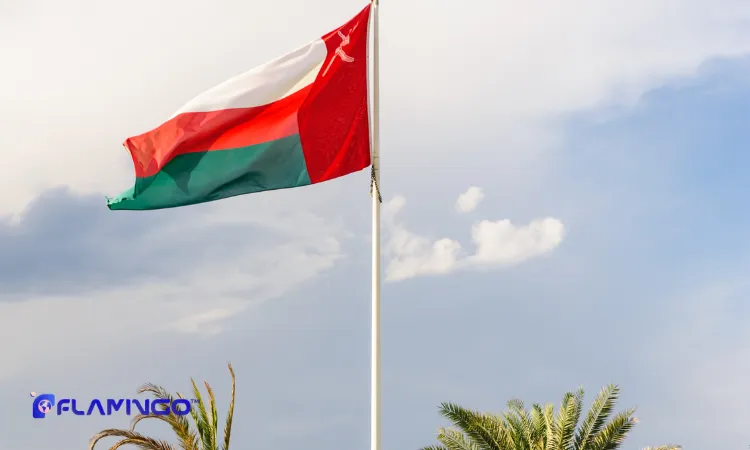Starting a business in Oman can be one of the smartest moves for entrepreneurs and investors looking to enter the Middle East market. Thanks to its political stability, strategic location, and pro-investment policies under Oman Vision 2040, the country offers a favorable environment for both local and foreign businesses.
In this article, we’ll explore all the types of companies in Oman, how they are structured legally, and which one may best suit your business goals to start your bussines in oman.
Main Types of Companies in Oman
Under Omani law, businesses can be formed in several legal structures. Each type of company in Oman has specific ownership requirements, capital conditions, and liability implications. Let’s explore each one in detail.
Limited Liability Company (LLC)
An LLC (Limited Liability Company) is the most common and preferred business structure for both local and foreign investors in Oman.
Ownership: An LLC can have between 2 and 50 shareholders. Foreign investors can now own 100% of shares in most industries.
Capital Requirements: The minimum capital requirement has been removed for most activities, though banks may require proof of adequate funds.
Liability: Each shareholder’s liability is limited to the value of their shares.
Advantages: Flexible management, limited liability, and eligibility to hire expatriates.
This structure is ideal for small and medium-sized enterprises and foreign investors seeking control without public listing.
Joint Stock Company (SAOG and SAOC)
Joint stock companies are suitable for large-scale projects or businesses that plan to go public. There are two main types:
Public Joint Stock Company (SAOG)
Can offer shares to the public.
Requires a minimum of three shareholders.
Minimum share capital: OMR 2 million.
Subject to strict regulatory and audit requirements.
Closed Joint Stock Company (SAOC)
Shares are not publicly traded.
Minimum share capital: OMR 500,000.
Can have up to 50 shareholders.
Key advantage: Access to large-scale funding through share offerings and enhanced credibility.

General Partnership Company
A General Partnership is formed between two or more individuals who share profits, responsibilities, and liabilities equally.
Liability: Partners are jointly and personally liable for the company’s obligations.
Ownership: Limited to Omani nationals.
Management: Each partner has equal management rights unless agreed otherwise.
While easy to form, this structure carries high personal risk due to unlimited liability.
Limited Partnership Company
A Limited Partnership (also known as commandite company) consists of one or more general partners and one or more limited partners.
General Partners: Have full management authority and unlimited liability.
Limited Partners: Contribute capital and have liability limited to their investment.
Ownership: Generally reserved for Omani citizens, though exceptions exist for foreign participation in specific sectors.
This model suits businesses where some partners want limited involvement and risk.
Sole Proprietorship (Establishment)
A Sole Proprietorship is a simple business structure owned and operated by a single individual.
Ownership: 100% owned by one person.
Liability: The owner bears full personal liability for debts and obligations.
Restrictions: Only Omani or GCC nationals can register a sole proprietorship (foreigners must partner with a local).
Advantages: Full control and easy setup.
This form is best for small, local businesses or freelancers who want to operate independently.
Holding Company
A Holding Company is established to own and control shares in subsidiary companies.
Purpose: Managing subsidiaries, investing in assets, or controlling other companies’ operations.
Structure: Can be LLC or Joint Stock.
Capital: Minimum OMR 2 million.
Holding companies are often used by large business groups to organize diverse assets and investments efficiently.
Branch of a Foreign Company
A Branch Office allows a foreign company to operate in Oman without forming a separate legal entity.
Requirement: Must have a contract with the Omani government or a government-approved project.
Ownership: 100% owned by the foreign parent company.
Liability: The parent company is fully liable for the branch’s operations.
Benefits: Quick entry into the Omani market with full control retained by the foreign entity.
However, this type cannot engage in commercial activities beyond its contract scope.
Read more : Full company registration process in oman
Why Oman is Attracting Foreign Investors
Oman has become an attractive destination for investors due to its open economy, tax incentives, and simplified business registration process. The government’s efforts to diversify the economy beyond oil and gas have created new opportunities in logistics, manufacturing, tourism, and technology.
Foreign investors can now own up to 100% of their business in many sectors, making Oman one of the most investment-friendly nations in the GCC.
Key Features of Oman’s Company Law
The main legal framework that governs business entities in Oman is the Commercial Companies Law (Royal Decree No. 18/2019). This law defines different company structures, registration requirements, shareholder responsibilities, and governance rules. It ensures transparency, investor protection, and clear legal procedures for company formation.

Choosing the Right Business Structure in Oman
Factors to Consider
When deciding among the types of companies in Oman, consider the following:
Ownership and control: Do you want full ownership or local partnership?
Liability: Are you comfortable with personal liability or prefer limited exposure?
Capital requirements: How much are you willing to invest initially?
Tax obligations: Each entity type may have different tax treatments.
Expansion goals: Some structures make it easier to scale or attract investors.
Recommended Structures for Foreign Investors
For most foreign investors, the Limited Liability Company (LLC) or Branch Office are the most practical choices:
LLC: Ideal for commercial operations, with full ownership rights in many sectors.
Branch Office: Best for executing government or large-scale projects under a parent company.
Legal Requirements for Company Formation
Registration Process and Documentation
To register any type of company in Oman, you’ll typically need:
Trade name reservation via the Ministry of Commerce, Industry and Investment Promotion (MOCIIP).
Articles of Association and Memorandum of Association.
Identification documents of shareholders and managers.
Lease agreement for office premises.
Capital deposit certificate (if required).
Once submitted, the MOCIIP issues a commercial registration certificate, allowing the company to begin operations.
Role of MOCI (Ministry of Commerce, Industry and Investment Promotion)
The MOCIIP is the primary government body overseeing company formation, licensing, and compliance.
Its Invest Easy online portal simplifies registration, license renewals, and modification of company details.
Read more : Company Registration vs Business License in Oman
Taxation and Compliance in Different Company Types
Corporate Tax Obligations
Most Omani companies are subject to a 15% corporate tax on net profits.
However, small businesses with profits below OMR 50,000 may qualify for reduced tax rates.
Foreign branches are also taxed on income derived from Oman-based operations.
Accounting and Auditing Requirements
All registered entities must:
Maintain accurate financial records.
Submit audited annual financial statements.
Comply with the Oman Tax Authority’s reporting standards.
Failure to comply can result in fines or suspension of the commercial license.

Conclusion
Oman’s legal framework offers a variety of business structures tailored to different needs , from sole proprietorships for small enterprises to joint stock companies for large investors.
Understanding the types of companies in Oman and their legal implications is crucial before registration. Whether you are a local entrepreneur or an international investor, choosing the right structure determines your control, liability, and growth potential.
If you’re planning to start a business in Oman, consulting a qualified legal or business advisor can help ensure compliance and strategic success.
Frequently Asked Questions (FAQ)
- What are the main types of companies in Oman?
Oman recognizes several types, including LLCs, joint stock companies (SAOG/SAOC), partnerships, sole proprietorships, holding companies, and branches of foreign firms.
- Which company type is best for foreign investors?
The LLC and Branch Office are most suitable due to flexibility and full foreign ownership options.
- Can a foreigner own 100% of a company in Oman?
Yes. Under recent reforms, full foreign ownership is allowed in most sectors, subject to activity type and licensing.






